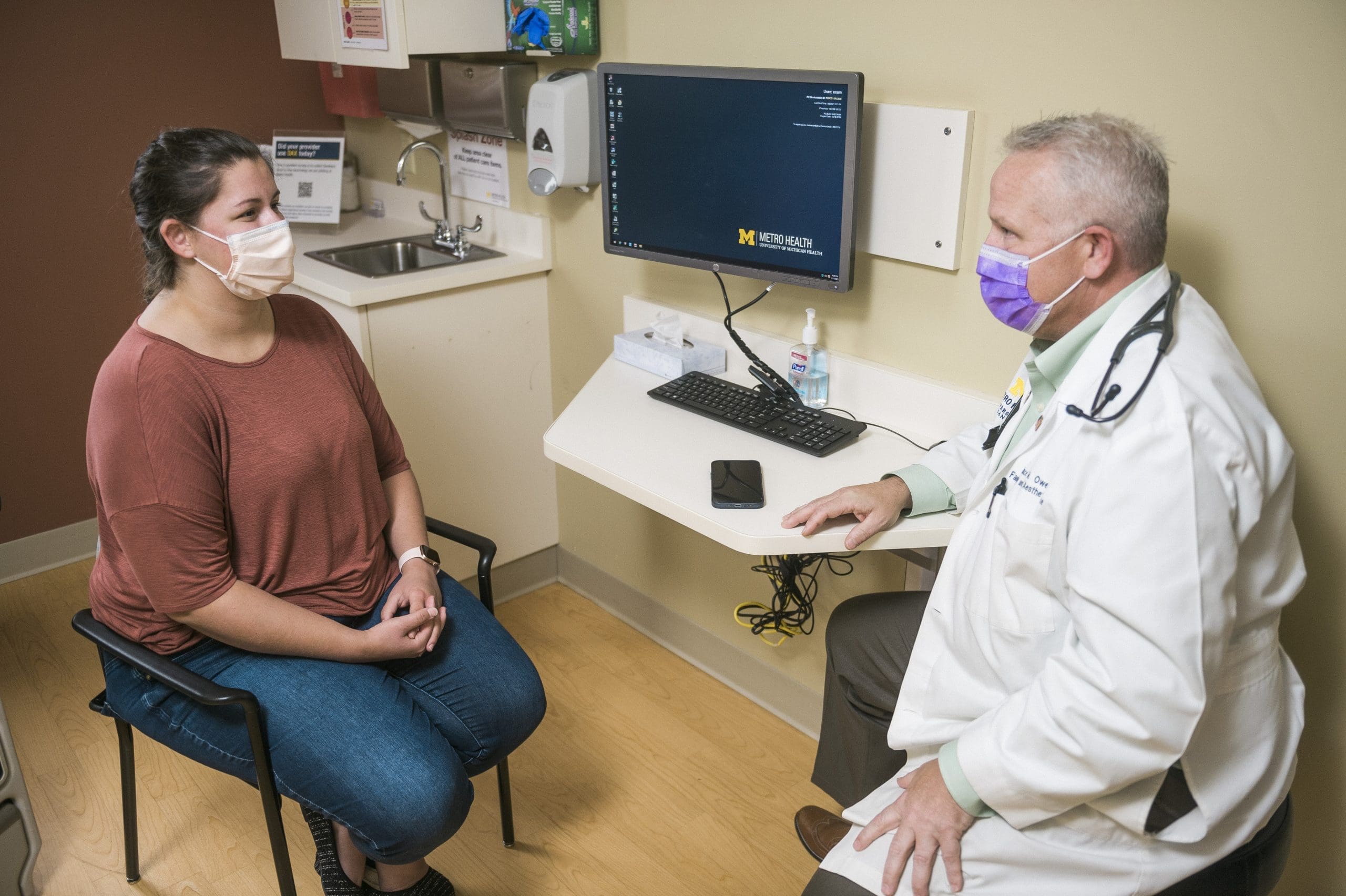
By Dr. Lance M. Owens, Chief Medical Information Officer, University of Michigan Health-West
If one thing can stand between patient and provider during a visit, it is the computer.
That’s no criticism of the integration of digital tools, which have become essential to creating a record of each patient encounter. Even so, every provider knows the challenge of typing on a keyboard to take complete and accurate notes while simultaneously trying to focus on the patient in front of us.
Just as importantly, patients notice when our eyes are on the screen instead of on them. This phenomenon gave rise more than a decade ago to the term “distracted doctoring,” and it is not just patients who suffer as a result. Documentation demands can overwhelm physicians, whereas connecting with patients is an essential part of feeling more fulfilled in their work.
That’s why a group of our providers in West Michigan are piloting an option to improve these encounters, with AI-driven ambient voice technology that records clinical conversations, contextualizes the words and intelligently creates documentation.
University of Michigan Health-West is the first system in the state to pilot the system. We are starting with 13 providers, a mix of primary and specialty care, and have already discovered multiple advantages that suggest this could become a transformative innovation.
A better patient encounter
As many health systems do, we offer training for providers to help balance attention between patient and computer in the exam room. This training acknowledges the computer as a “third person in the room,” and teaches strategies to intentionally shift attention to the patient at key moments of the visit.
However, the advantage of the ambient voice recording is that we don’t have to type in front of patients, and we don’t have to shift our attention. The system records our conversation and creates a record automatically, allowing us to give patients the attention they need and deserve.
And our patients notice the difference. In initial surveys at pilot sites, when asked to compare their visit to previous healthcare encounters, patients have overwhelmingly agreed when asked to react to several performance indicators:
- My visit felt more like a personable conversation.
- The provider seemed to be more focused on me during the visit.
- The provider spent less time typing on their computer.
As we continue to track the results on these key metrics during the pilot, we anticipate rolling out the system for all primary care physicians next year. We see potential to eventually expand for use in Emergency Department and nursing settings.

Less time on documentation, more on patients
By removing the burden of transcribing and correcting notes, the system helps providers spend more time with patients. Our vendor, Nuance, estimates that the system we are testing, the Dragon Ambient eXperience (DAX), can reduce time spent documenting care by 50 percent.
During the pilot, we found the automated documentation has opened enough time in schedules to allow providers to make impromptu phone calls to check in on their patients – adding another opportunity for human connection.
Increased efficiency also helps providers stay on schedule for their appointments – a factor that has driven great interest in the pilot from our office managers.
Improved accuracy
It is accepted that providers routinely give away care during visits. This happens for many reasons, including the challenge and inconvenience of documenting every service. In the course of an exam, if we can help address a small concern for a patient, it often makes little sense to pause the entire encounter, return to the computer and create the documentation.
However, when the care is automatically documented, we can expect more accurate notes and more accurate billings.
And with quality checks built into the system, we are seeing higher accuracy in our overall documentation, rather than asking providers to divide their attention between the patient and note-taking.
More fulfilling for patients and providers
As an organization that values innovation, Metro Health – University of Michigan Health puts an emphasis on technology that enhances the patient-provider experience. The DAX system is meeting that requirement by preserving the intimacy of that relationship.
The benefit to patients is becoming readily apparent in surveys that show appreciation for greater engagement with providers. We expect longer-term benefits by reducing the documentation burden on providers.
Contrary to the idea of technology replacing human interaction, we seek to support the one-on-one experience that drew our providers to their profession, with more fulfilling experiences and better outcomes for all.
HOW IT WORKS
The ambient voice system is simple to use and unobtrusive. Nuance, the company that developed the DAX system being piloted at Metro Health – University of Michigan Health, describes the process this way:
- Using a preferred device, every word of the patient-provider encounter is captured. (The system works for in-person visits and telehealth.)
- Voice biometrics provide security and speaker identification.
- The conversation is securely recorded and transferred to Nuance AI platform.
- Speech is diarized and automatically translated into clinical notes.
- The information is entered into the electronic health record as structured data, then goes through a quality review process.
- Notes are delivered to physician through the electronic health record for final review and signature.